British PM To Seek Extension After MPs Back Brexit Delay
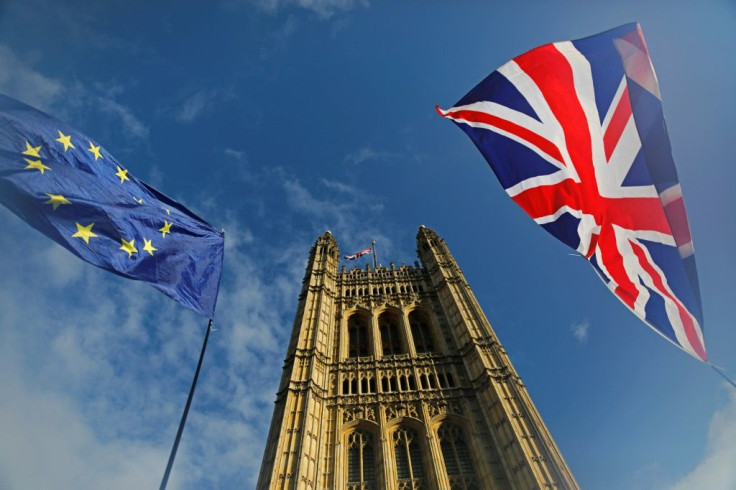
Prime Minister Boris Johnson is to write to Brussels seeking a Brexit deadline extension after MPs voted Saturday to demand he delay Britain's October 31 departure date.
In a phonecall with European Council President Donald Tusk after the vote, Johnson said he would send the letter mandated by MPs to seek more time, a EU source told AFP.
"The PM confirmed that the letter would be sent to Tusk today," the source said.
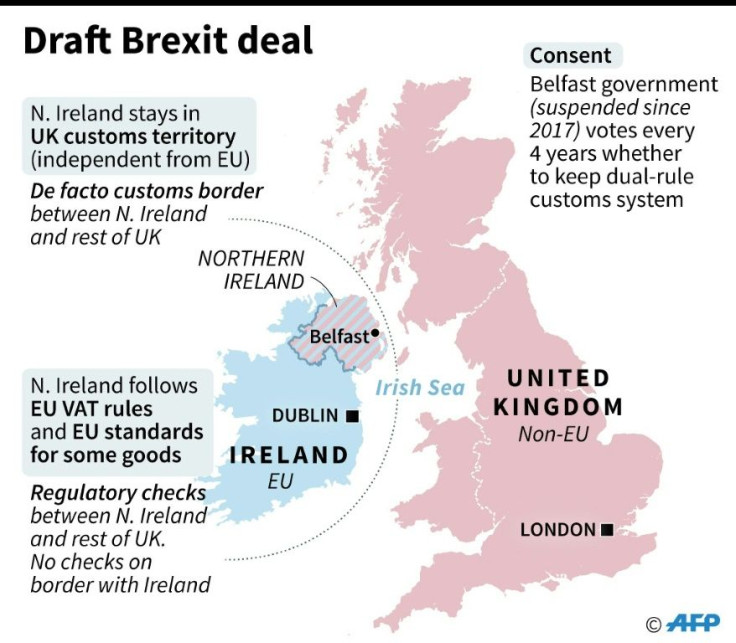
"Tusk will on that basis start consulting EU leaders on how to react. This may take a few days," he added.
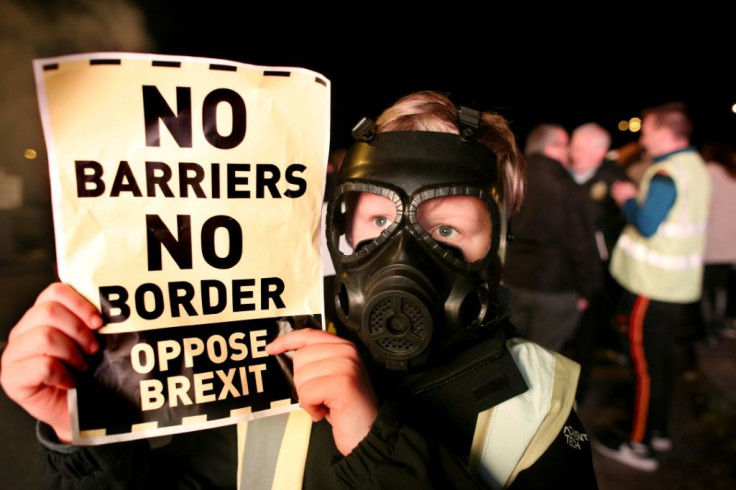
Tusk said on Twitter that he was "waiting for the letter".
British MPs voted to demand Johnson delay Brexit while they further consider his EU divorce deal but the prime minister defiantly insisted Britain will still leave on October 31.
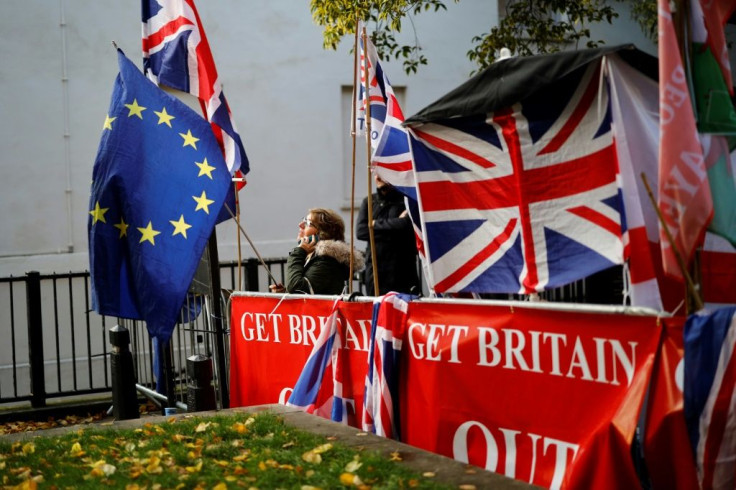
In a day of high drama in the House of Commons, MPs declined to give their backing to the agreement Johnson struck with the EU this week until the legislation needed to ratify it has passed.
In doing so, they triggered a law requiring Johnson write to EU leaders by the end of the day asking to delay Brexit, to avoid the risk that Britain crashes out in less than two weeks.
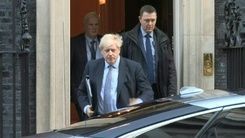
Outside parliament, tens of thousands of people marching to demand a new referendum that might reverse Brexit erupted into cheers at the vote.
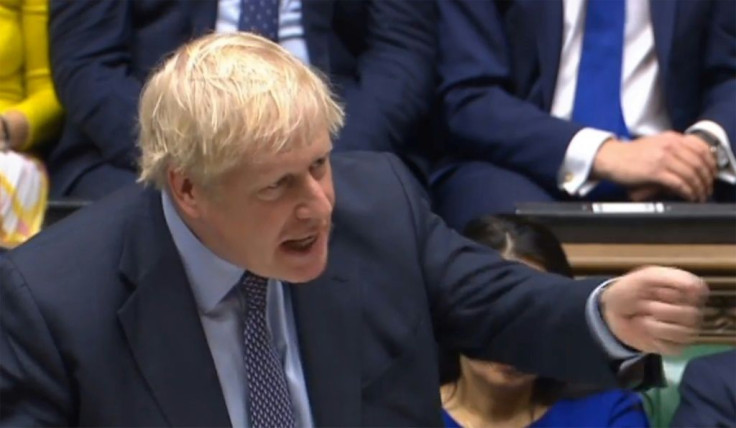
"That's really good, that's one step away from Brexit," demonstrator Philip Dobson told AFP.
"Reject Brexit", "Put It To The People" and "Stop This Madness" read some of the placards at the march, where many protesters also waved EU flags.
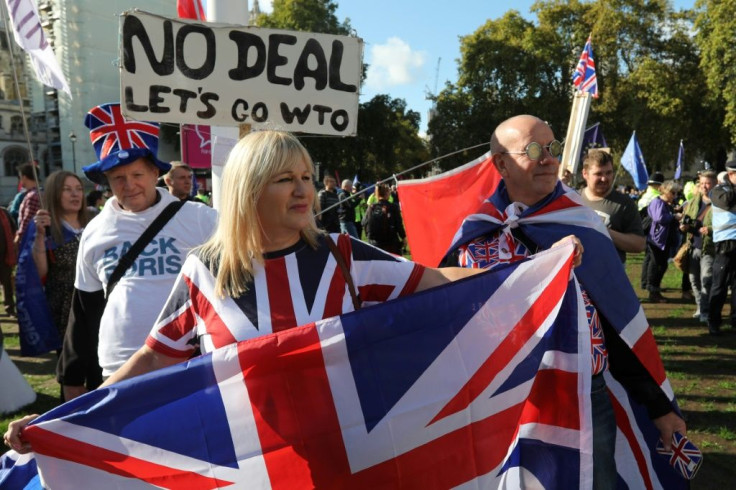
'I will not negotiate'
The vote is a blow to Johnson, who has previously said he would rather be "dead in a ditch" than prolong the tortuous process of ending Britain's 46-year-old membership of the EU.

But Johnson responded with characteristic defiance, sparking outrage among opposition MPs -- and fresh uncertainty about what happens next.
"I will not negotiate a delay with the EU and neither does the law compel me to do so," he told MPs, who met on a Saturday for the first time since the 1982 Falklands War.
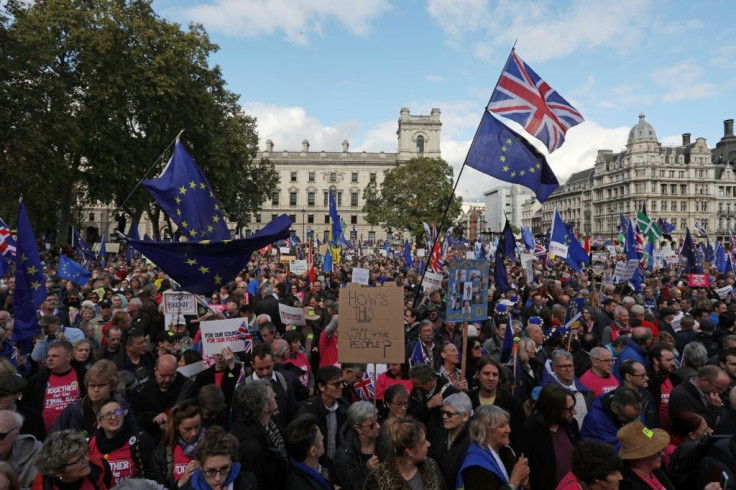
"I continue in the very strong belief that the best thing for the UK and for the whole of Europe is for us to leave with this new deal on October 31."
There was no immediate confirmation from British officials that Johnson would send his letter to the EU, but a tweet from his Conservative party said: "The prime minister will not ask for a delay".
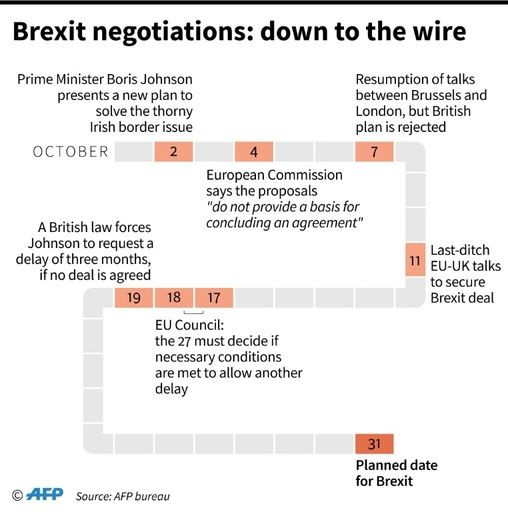
In a letter to his fellow Conservative MPs after the vote, Johnson said he would tell Brussels "further delay is not a solution.
"It is quite possible that our friends in the European Union will reject parliament's request for a further delay (or not take a decision quickly)," he added.
The French presidency said on Saturday that any new delay in Britain's departure from the EU was "in nobody's interest".
Brussels urged Britain to explain its plan as soon as possible, while French President Emmanuel Macron's office said a new delay to Brexit was "in nobody's interest".
Labour leader Jeremy Corbyn, whose party opposes the deal, said: "The prime minister must now comply with the law."
Court risk
Securing the deal at Thursday's EU summit was a personal victory for Johnson, a figurehead in the 2016 Leave campaign who has vowed to deliver Brexit on October 31 come what may.
He had spent 48 hours frantically trying to persuade MPs to back it, and won support from many of the eurosceptic Conservative MPs who had rejected a previous divorce agreement.
But parliament -- like the frustrated public -- is still bitterly divided over how and even whether Britain should end decades of integration with its closest trading partner.
MPs voted by 322 to 306 to back a motion by former Conservative minister Oliver Letwin that "withholds approval (of the deal) unless and until implementing legislation is passed".
The failure to get a clear vote for the text triggers a law requiring Johnson ask the EU to delay Brexit for three months -- or to another date of their choosing.
If he refuses, he is likely to face a court challenge.
He said he would introduce legislation next week to implement his deal, with a first vote as soon as Tuesday.
There is a chance the deal could pass, and Britain could still leave the EU on October 31, but there remains strong opposition to the agreement among MPs.
MPs could try to hijack the legislation on the Brexit deal next week with a motion to call a new referendum, although previous attempts have failed.
burs-ar/rjm/pvh
© Copyright AFP 2024. All rights reserved.





















